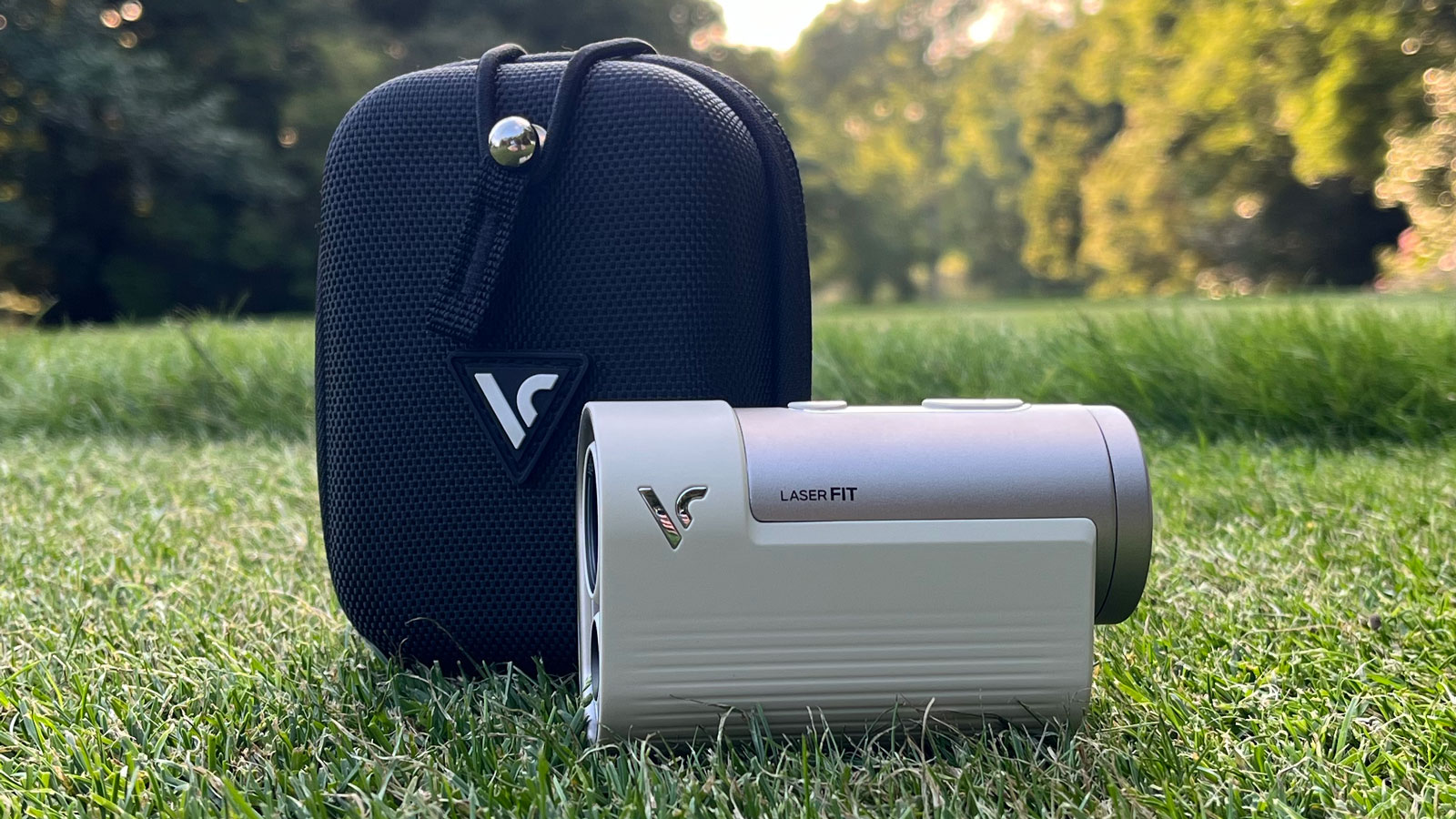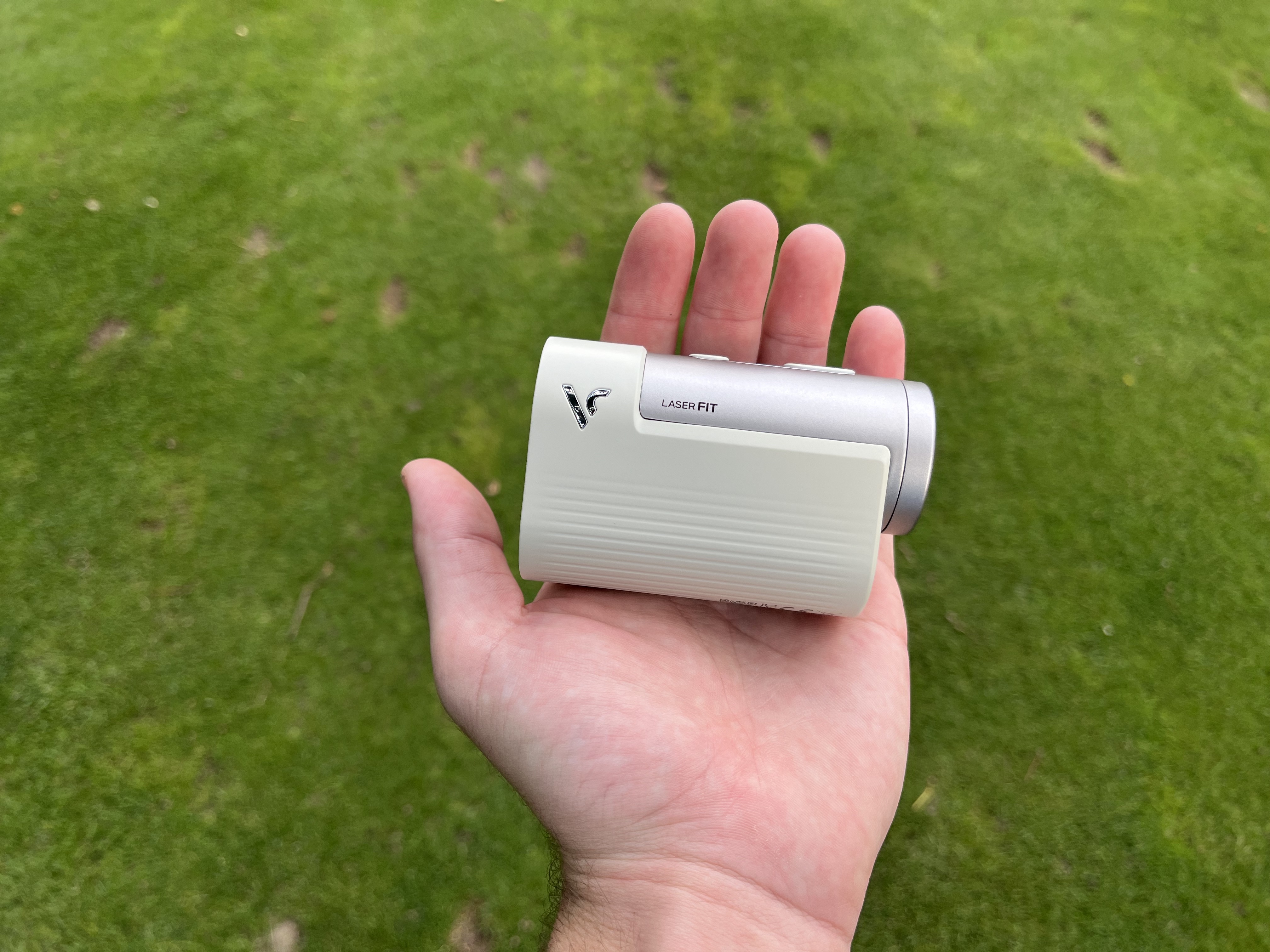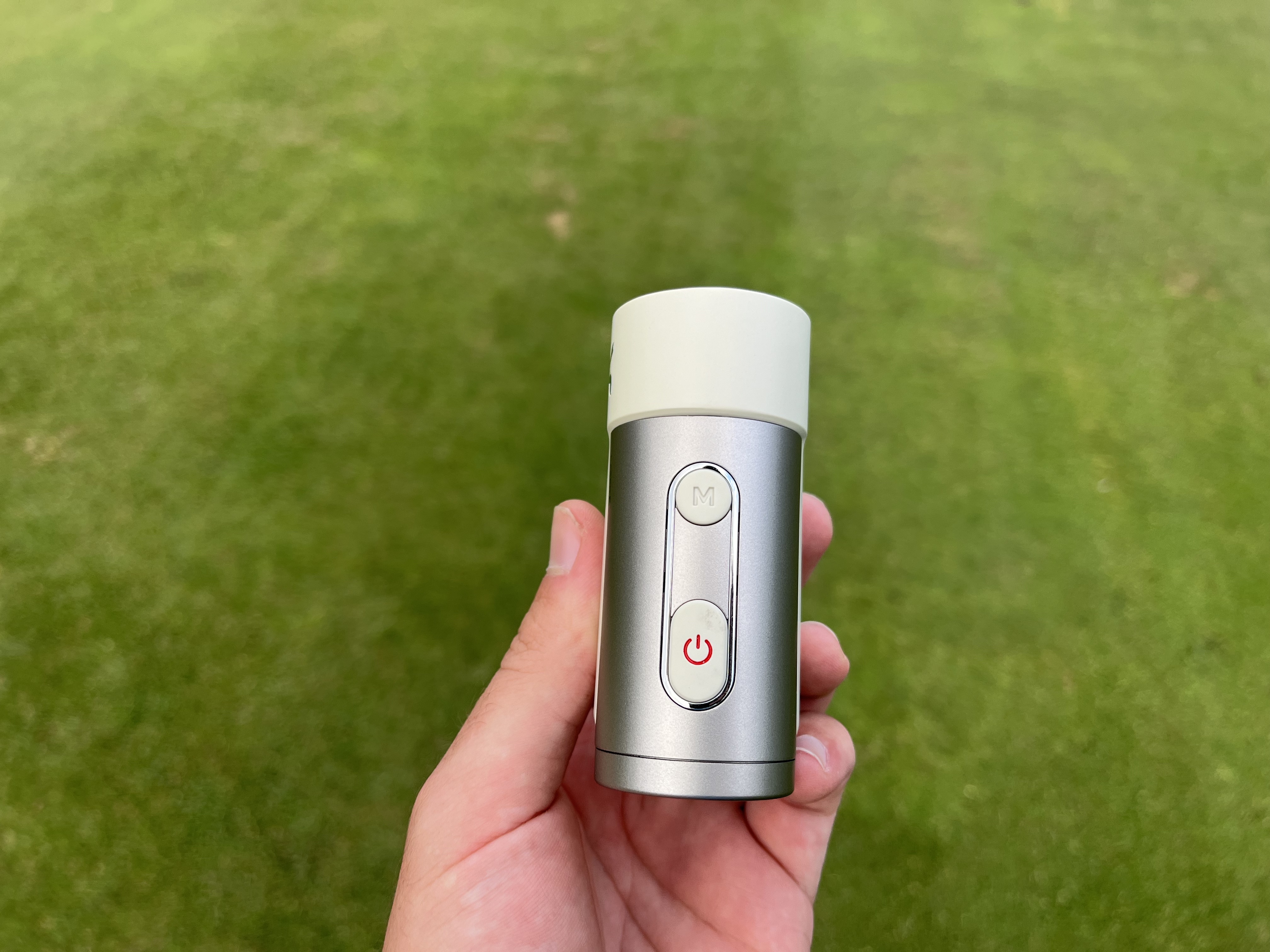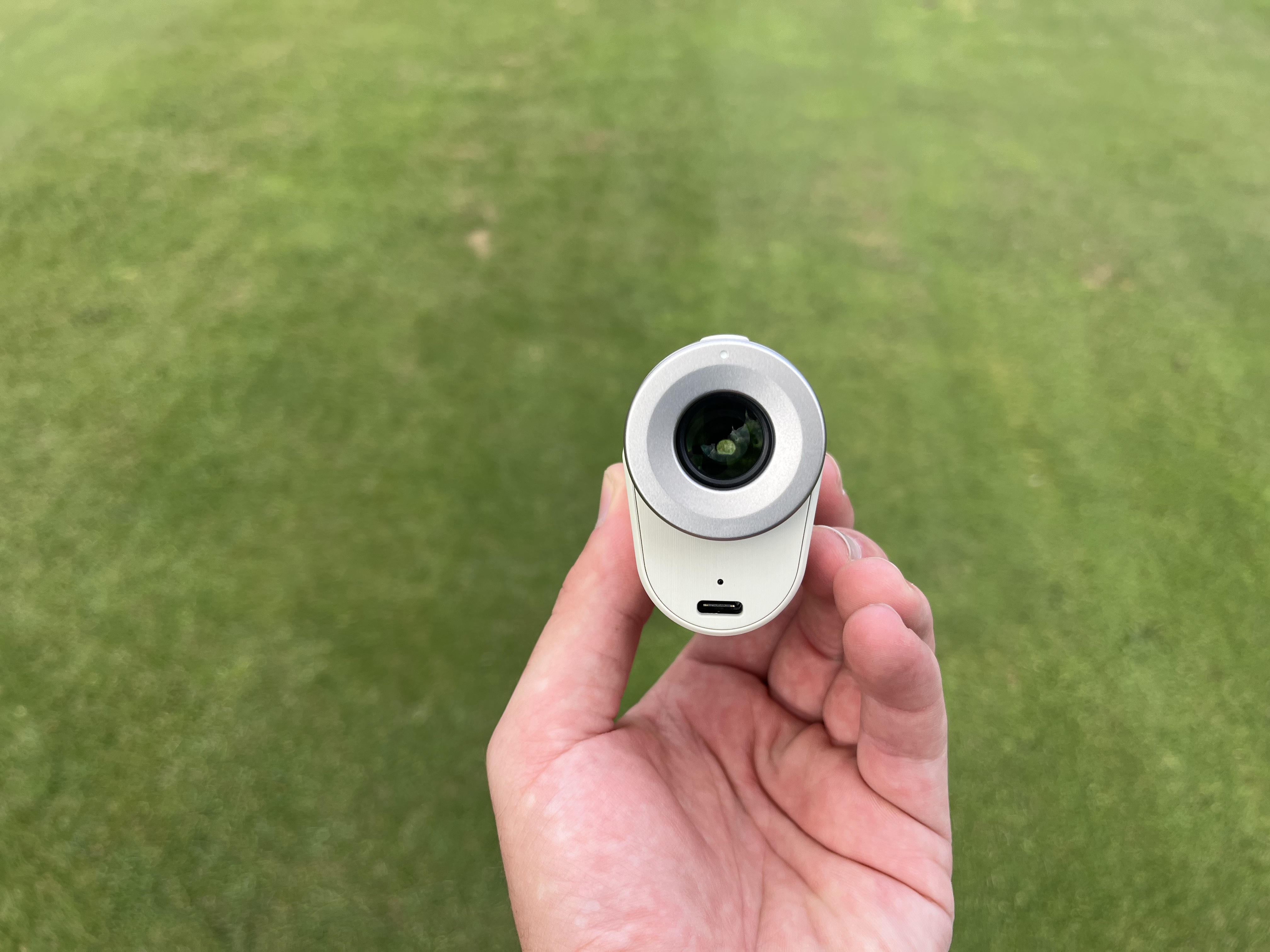Voice Caddie Laser Fit Rangefinder Review
How did Voice Caddie's diminutive new laser rangefinder perform when we took it out to the golf course?

A minimalist but feature-packed rangefinder that comes in at an excellent price point. While the lightweight, non-waterproof build won't suit all golfers, those who play a lot of 'cart path only' golf will especially benefit from the superb triangulation feature.
-
+
Minimalist, lightweight design
-
+
Triangulation feature is a useful and rare feature
-
+
Long battery life
-
-
Not fully waterproof
Why you can trust Golf Monthly

Voice Caddie has become a well established brand over the last decade, positioning itself well amongst the brands that make some of the best laser rangefinders, best launch monitors and best GPS watches on the market. Its newest rangefinder, the Laser Fit, is the smallest it has released to date. Coming in at under $200 means this rangefinder sits on the more affordable end of the price scale. With that, you'd expect a few tradeoffs in functionality and quality versus its more expensive competition, but there were far fewer tradeoffs than I thought as I went through my testing of this product.
My first impressions of the Laser Fit was just how small it is. It can easily fit into the palms of my relatively small hand - I wear a size small glove if that helps contextualize it - while the build quality and feel in the hand is still similar to rangefinders I've used that come in well over the $200 mark. It's incredibly lightweight too, weighing just 4oz in total. This means it barely makes an impression on extra weight added to your bag if you're a walking golfer, although those with shakier hands may find the lightweight build a little inconvenient, perhaps.
The lightweight nature also means it may not stand up to some elements more expensive rangefinder can. For example, it's not fully waterproof and the material of the casing will certainly show signs of wear if it's dropped on a path. The lack of perceived sturdiness to the Laser Fit is perhaps the only drawback to this product. Look after it well, and I don't see why it wouldn't be able to last for years to come.

Onto the functionality, which I was super impressed with. Not only did it pick up the pins incredibly quickly, but the bright graphics and haptic feedback the device gives off when you've zapped the pin makes confirming you've got the right target that little quicker. The bright graphics are bolstered by the dual display, which will show up in either black or red depending on the light conditions. This is a really useful tool and one you rarely see on more budget rangefinders. Slope mode - which can easily be turned on and off when in competition - was also very accurate and a useful feature to have available. Really though, Slope functionality is the bare minimum on any rangefinder worth its money.
The real feather in the Laser Fit's cap is its ability to triangulate distance between the ball and the pin. This feature allows you to first zap the ball, then zap the pin to give you a precise yardage even when you're not directly next to the golf ball. This is particularly useful if you're playing a cart path only round and don't want to have to walk to the ball to get a yardage to have to then walk back to the cart. This is also a rare piece of functionality that only a few rangefinders of any price can boast. We've seen this tech on the similarly tiny CaddyTalk Cube, albeit the Laser Fit comes in $100 less. Walking golfers won't need to use the triangulation feature much at all, but there's no stopping golfers using it to triangulate the distance between the front and back of the green ahead, for example.


The device has a rechargeable battery, charged via a USB-C cable that's included in the box, and comes with a pretty standard, basic black case. I quite like the case versus some of the louder, brighter cases Voice Caddie has provided in the past. The battery life is proposed to be 8 hours of total use. Considering how little rangefinders are actually in use during a round, the brand purports this 8 hours of in use battery life to give golfers 40+ rounds from one charge. I've only used it a dozen or so times so far, so can't report on this precisely, but I trust Voice Caddie's 40+ round prediction.
Overall I was a real fan of the Laser Fit. It's diminutive build will suit a lot of golfers who prefer a minimalist look and feel. That said, it's still feature-packed and I think cart golfers will find the triangulation feature especially useful. The $199 RRP is also extremely competitive and it feels like there's real value for money to be had here from this quality product.
Subscribe to the Golf Monthly newsletter to stay up to date with all the latest tour news, equipment news, reviews, head-to-heads and buyer’s guides from our team of experienced experts.

Dan has been with the Golf Monthly team since 2021. He graduated with a Master's degree in International Journalism from the University of Sussex and looks after equipment reviews and buying guides, specializing in golf shoes, golf bags, golf trolleys, and apparel reviews. Dan is also a co-host of Kick Point: The Golf Gear Show. A left-handed golfer, his handicap index is currently 7.1, and he plays at Fulford Heath Golf Club in the West Midlands.
Dan's current What's In The Bag:
Driver: Cobra DS-Adapt X
Mini driver: TaylorMade R7 Quad Mini
Fairway: Ping G440 Max 21°
Irons: Titleist T250 (5), Titleist T100 (6-PW)
Wedges: Ping Glide Forged Pro (50, 56, 60)
Putter: TaylorMade Spider Tour X
Ball: Titleist Pro V1x
Grip: Golf Pride Tour Velvet
Bag: Vessel Sunday III